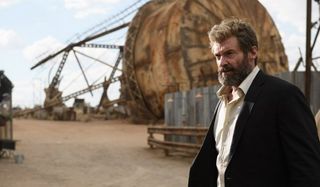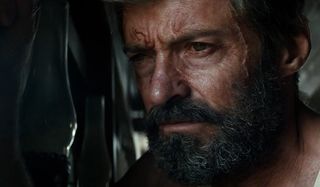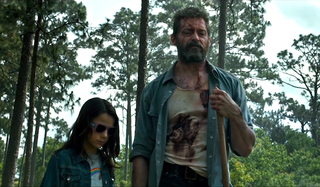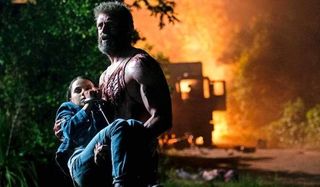Why Logan Is The Most Important Comic Book Movie Ever

Now that everyone has had a chance to digest Logan, the growing consensus is that it's right up there with the best comic book movies ever released. Given a free reign and an R-rating to play with, co-writer and director James Mangold and star Hugh Jackman have created a film that has not only raised the bar for the genre, but provided an opportunity for it to have a rebirth, too.
This isn't the first time that we've heard such a claim. Endless journalists across countless op-ed pieces have insisted that, post-Nolan's Batman Begins, the likes of The Avengers, Guardians Of The Galaxy, Captain America: The Winter Soldier, and Deadpool have in one way or another rejuvenated the genre.
But this time around Logan really has done just that. Here are three reasons why Logan has freshened up the comic book movie, and why it is actually the most important to ever be made.

Logan Has A Distinct, Dirty, Gloriously Cinematic Style
Logan is distinctively, and cinematically dirty. It gets between your fingernails like no other comic-book movie ever has, which bleeds into James Mangold showing us how fallible Wolverine has become and how alone he is in this world. While it's admittedly a little downbeat, it's a point-of-view that we're just not used to seeing with the genre, which makes it so interesting. While Marvel's output all has the same blindingly bright color palette, and quick action edits, Logan feels as though it has been chewed up and spat out by James Mangold, before then being passed on to Hugh Jackman to do the same. That's before we even get to the R-rating, which allows Mangold to go into gory visceral detail with his violence to such an extent that you can't help but wince, while at the same time you also get a palpable sense of what it would be like to be speared by adamantium claws.

Logan's Poignancy Anchors The Film And Makes You Care More Than You've Ever Cared Before
In many ways Logan might actually be the quintessential cinematic embodiment of a comic book. It doesn't just rest on one tone or approach. Instead, it is able to go from hilarious to poignant to high-octane action without missing a beat, and without ever disrupting its rhythm. Rather than its surprises or its violence, it's the heartbreaking poignancy between Wolverine and Professor X that makes Logan resonate so strongly. Logan's voice also feels more inline with what we'd expect from Wolverine, too. Its humor is more brutal than the cheeky witticisms we've become accustomed to from the genre, while the R-rating is perfectly exploited to depict his rage. This won't be the case for every comic-book adaptation, which don't all need to be R-rated to excel, but Logan shows that by creating a genuine emotion between the characters and the audience they'll be more invested than if you just drown a film in special effects.

Logan Uses And Draws From Its Influences In Perfect Amounts
While plenty of other comic book movie directors regularly cite a variety of films as inspirations, by the time they're released, you can never spot them on screen. That's not the case with Logan, which pays homage to and draws influence from a variety of different sources, while still creating and maintaining its own unique style, tone and voice.
The clearest influence on Logan is Shane, George Stevens's 1953 Western, which is so important to the film that Charles Xavier (Patrick Stewart) even shows it to Laura (Dafne Keen) halfway through. But there are much subtler and less obvious reference points for the film. Hugh Jackman's portrayal of Logan on his last-legs is reminiscent of Mickey Rourke in The Wrestler, while the subversive look at the character owes a debt to both Jackman's previous appearances, and how Clint Eastwood did the same in Unforgiven. Yet while these aspects bring a familiarity to the film they never overwhelm it or Jackman's performance. Instead they're used as a launchpad to make Logan distinctive in its own right. Now let's hope that, without copying Logan, other comic-book movies can use this same approach to create something original of their own and take the genre to even greater heights.
CINEMABLEND NEWSLETTER
Your Daily Blend of Entertainment News
Most Popular




